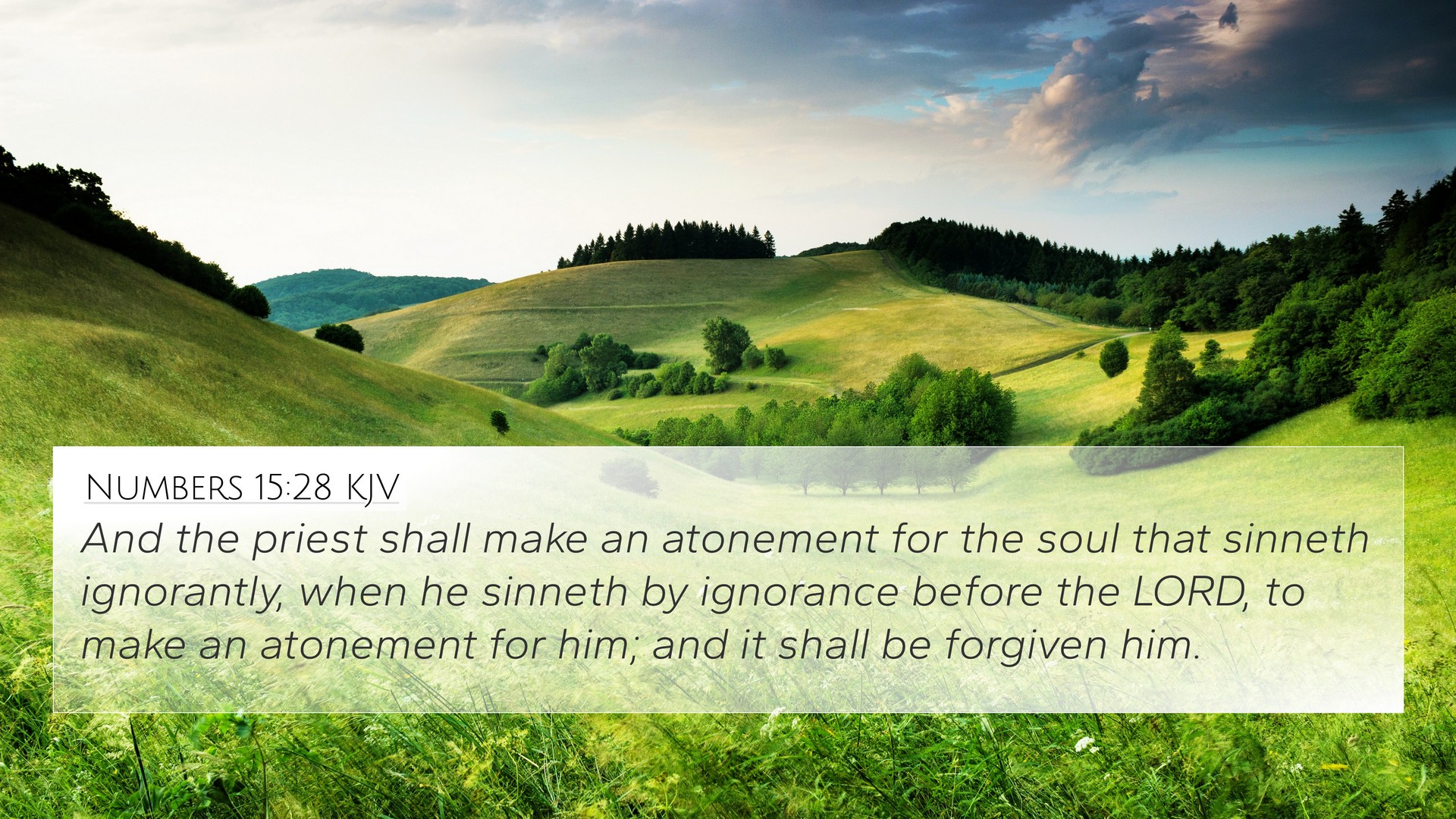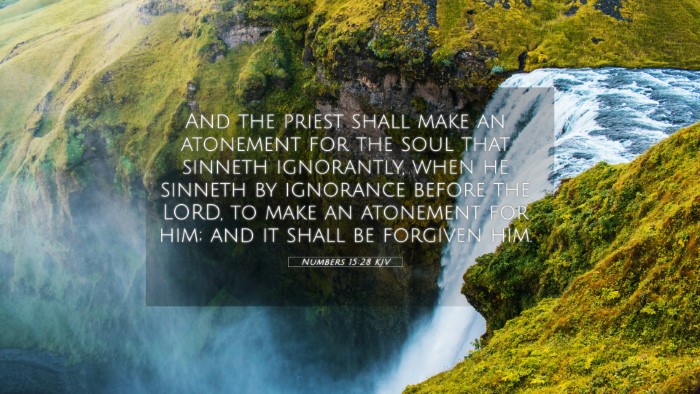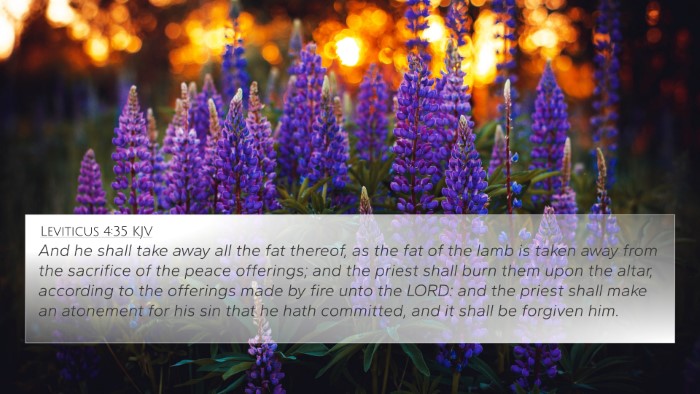Understanding Numbers 15:28
Numbers 15:28 states, "And the priest shall make an atonement for the soul that sinneth ignorantly, when he sinneth by ignorance before the Lord, to make an atonement for him; and it shall be forgiven him." This verse addresses the concept of atonement for unintentional sins and plays a vital role in understanding the broader themes of sin, forgiveness, and the priestly duties described in the Book of Numbers.
Key Insights from Public Domain Commentaries
- Matthew Henry's Commentary:
Matthew Henry elaborates on the importance of grace and the role of the priest in mediating between God and man. He emphasizes that God's mercy extends even to those who sin unintentionally and that the priest's intercession is vital in the process of atonement.
- Albert Barnes' Notes:
Barnes points out that the provision for unintentional sins demonstrates God's justice and mercy. He notes that this verse reflects God's understanding of human frailty and the need for forgiveness, highlighting that atonement is essential even for those unaware of their transgressions.
- Adam Clarke's Commentary:
Clarke examines the term "sinneth ignorantly," explaining that it refers to actions committed without knowledge of wrongdoing. He stresses the significance of intention behind sin and that atonement can restore the relationship between individuals and God, focusing on the priest's essential role in offering sacrifices for the people.
Thematic Connections
Numbers 15:28 establishes several thematic connections particularly related to sin, atonement, and the character of God as merciful and just. This verse resonates throughout the Scriptures and can be cross-referenced with various passages that explore similar themes:
- Leviticus 4:27-31: Discusses the atonement for unintentional sin and its implications.
- Psalms 19:12: "Who can understand his errors? Cleanse thou me from secret faults." This verse reflects the idea of seeking forgiveness for unknown sins.
- 1 John 1:9: "If we confess our sins, he is faithful and just to forgive us our sins, and to cleanse us from all unrighteousness." This passage demonstrates God's faithfulness in forgiveness.
- Hebrews 9:22: Relates to the necessity of blood for atonement, echoing the sacrificial system established in the Old Testament.
- James 4:17: "Therefore to him that knoweth to do good, and doeth it not, to him it is sin." This verse differentiates between intentional and unintentional sins.
- Romans 5:20: "Moreover the law entered, that the offence might abound. But where sin abounded, grace did much more abound." This illustrates the abundance of God's grace in the face of sin.
- Ephesians 4:32: Encourages believers to forgive others as they have been forgiven by God, echoing the theme of mercy.
Related Bible Verses and Their Significance
When exploring the implications of Numbers 15:28, it is crucial to consider how other verses contribute to a comprehensive understanding:
- Isaiah 53:5: Describes the suffering servant whose wounds bring healing, a precursor to the ultimate atonement through Christ.
- Acts 17:30: Encourages repentance, acknowledging that God overlooks ignorance while calling all to turn to Him.
- Colossians 1:14: States that we have redemption through Christ's blood, highlighting the ultimate fulfillment of atonement.
- 1 Timothy 1:13: Paul speaks of being shown mercy despite his ignorance, resonating with the theme of forgiveness for unintentional sins.
Tools for Bible Cross-Referencing
To facilitate a deeper understanding of Bible verses like Numbers 15:28, employing tools for Bible cross-referencing is beneficial. These resources enable a comprehensive study of Scripture and its interconnected themes:
- Use a Bible Concordance to locate specific verses and their themes quickly.
- A Bible Cross-reference Guide can help pinpoint related scriptures.
- Utilizing a Cross-reference Bible Study approach enhances thematic exploration.
- Explore a comprehensive Bible Cross-reference System for in-depth study.
- Employ Bible Reference Resources for connecting themes across different books.
- Investigate Bible Chain References to see the links between different passages.
Conclusion
Numbers 15:28 represents a profound aspect of biblical theology concerning sin and atonement. By understanding the verse in light of various commentaries and cross-references, one can appreciate the intricate relationships between Scripture passages. This provides a greater understanding of God’s grace, mercy, and the system of atonement that is central to the biblical narrative. Through diligent study and cross-referencing, believers are better equipped to grasp the significance of their faith and the foundational truths found within the Scriptures.



